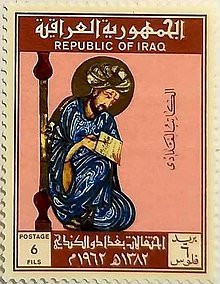Al-Kindi: The Philosopher of the Arabs

Al-Kindi (c. 801–873 CE), also known as the “Philosopher of the Arabs,” was one of the most influential figures in the history of philosophy, science, and mathematics. As a pioneer of the Islamic Golden Age, he played a key role in integrating Greek philosophy with Islamic thought. His groundbreaking works in cryptography, optics, music theory, and medicine laid the foundation for future advancements, making him a vital contributor to various scientific disciplines and intellectual traditions.
Early Life and Education
Born in Kufa, in present-day Iraq, Al-Kindi belonged to the prestigious Arab tribe of Kinda. From a young age, he displayed remarkable intellect, excelling in various fields of study, including mathematics, astronomy, and philosophy. His early education took place in Kufa before he moved to Baghdad, the intellectual hub of the Abbasid Caliphate.
Under the patronage of the Abbasid rulers, he gained access to the renowned House of Wisdom, where he studied Greek, Persian, and Indian works, enriching his vast knowledge.
Contribution to Philosophy and Sciences
- Advancements in Mathematics and Cryptography: He made significant contributions to algebra, geometry, and number theory. His pioneering work in cryptography introduced frequency analysis, which remains essential in modern code-breaking.
- Contributions to Medicine and Pharmacology: Al-Kindi classified diseases, wrote medical treatises, and emphasized the role of diet and holistic health. His pharmacological studies focused on the properties and effectiveness of drugs, influencing future medicinal research.
- Astronomical and Optical Studies: He refined celestial models and improved astronomical instruments for more accurate observations. His research on light reflection and vision helped shape the early study of optics, influencing later scientists like Ibn al-Haytham.
Music and Legacy
- Mathematical Approach to Music Theory: Al-Kindi studied the mathematical structure of sound, analyzing frequencies and harmonics to explain musical scales. His work helped develop the scientific foundation of acoustics.
- Interdisciplinary Influence: His vast knowledge across multiple fields helped preserve and expand Greek and Islamic scientific knowledge. He inspired later scholars such as Al-Farabi, Ibn Sina, and Al-Haytham.
- Knowledge Transmission and Global Impact: Through his translations and writings, Al-Kindi played a key role in preserving ancient knowledge and transmitting it to Europe. His works became a bridge between classical antiquity and the European Renaissance.

Legacy and Influence
Al-Kindi’s extensive writings were instrumental in preserving and transmitting Greek philosophy and science to the Islamic world and beyond. His works laid the groundwork for later scholars like Al-Farabi, Ibn Sina, and Ibn Rushd, who expanded upon his philosophical and scientific ideas. His efforts in translation and commentary helped bridge the gap between classical knowledge and medieval Islamic thought.
His influence extended to medieval Europe, where Renaissance scholars drew upon his insights in philosophy, mathematics, and optics. Al-Kindi’s legacy as a pioneer of rational thought and interdisciplinary learning remains a cornerstone of intellectual history.
Conclusion
Al-Kindi’s groundbreaking contributions to philosophy, mathematics, medicine, and optics establish him as one of the most influential scholars of the Islamic Golden Age. His efforts in preserving and expanding Greek knowledge helped shape the foundations of various scientific disciplines, earning him recognition as the “Philosopher of the Arabs.”
His legacy highlights the vital role of Muslim scholars in the advancement of global knowledge. Recognizing his work encourages a deeper appreciation of the intellectual achievements of the Islamic world and their lasting impact on modern science and philosophy.



